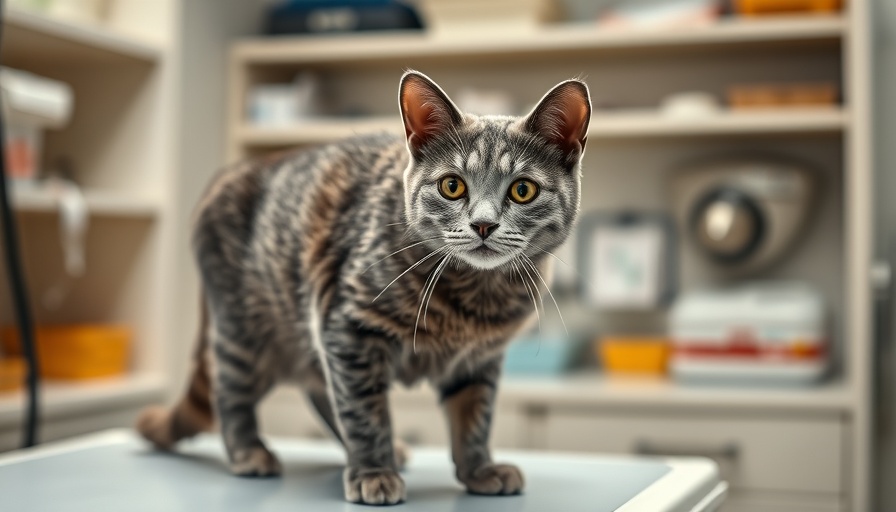
Understanding the Hidden Health Issues in Cats
Anyone who loves a cat knows how close our bond with them can be; they often follow us around, sit with us while we’re working, and sleep next to us at night. However, our feline friends have a natural instinct for self-preservation, which can make it challenging to detect when they aren't feeling well. Understanding their behavior and subtle signs of distress is imperative for pet owners.
Why Cats Hide Their Illness
Cats are both predators and prey. In the wild, a sick or injured cat risks becoming an easy target for larger predators. This instinct has carried over to domestic cats, who may hide or appear subdued, leaving pet owners oblivious to possible health issues. Regular veterinary check-ups become essential to ensure their well-being. A yearly wellness exam can catch issues before they become severe, especially since many diseases show only subtle signs in their early stages.
Common Hidden Health Issues in Cats
Here are some common yet hidden health conditions that all cat owners should be aware of:
1. Feline Immunodeficiency Virus (FIV)
FIV compromises a cat’s immune system, making them more susceptible to infections. Approximately 5–8% of cats worldwide carry this virus, yet many live healthy lives without showing symptoms. Watch for low energy, fever, or swollen lymph nodes.
2. Diabetes
Diabetes mellitus occurs when a cat's body either cannot produce enough insulin or cannot properly use it. Symptoms can initially be quite subtle, including increased thirst and urination, weight changes, or lethargy. The sooner diabetes is detected, the better the chance for management and treatment.
3. Kidney Disease
Chronic kidney disease (CKD) is particularly common in older cats and can manifest slowly over time. Key signs include changes in appetite, increased thirst, and poor grooming. Regular veterinary blood tests can reveal kidney function before significant symptoms appear.
4. Hyperthyroidism
This condition is prevalent among older cats and results from an overproduction of thyroid hormone. Common symptoms include increased appetite, weight loss, and hyperactivity. Early detection is essential, as treatment options are more effective when initiated sooner.
5. Dental Disease
Oral health is often neglected, yet dental issues can lead to severe pain and infection. Signs can include bad breath, difficulty eating, or pawing at the mouth. Cats may not show obvious signs of dental pain, which makes regular dental check-ups invaluable.
6. Heart Disease
Cardiomyopathy is the most common heart condition in cats, and symptoms can be discreet. Owners should look for coughing, difficulty breathing, or lethargy. Identifying heart disease early can significantly improve a cat's prognosis and treatment options.
7. Obesity
While obesity might seem less threatening, it can lead to serious health issues such as diabetes and joint problems. Regularly monitoring your cat's weight and maintaining a healthy diet can prevent this condition from becoming a problem.
Encouraging Regular Vet Visits
As responsible cat caretakers, the onus is on us to recognize changes in our pets’ behaviors and seek veterinary care when anything seems amiss. Keeping vigilance over our feline companions' health can save lives. While some cats may seem resilient, early detection of health issues can provide them with a better quality of life.
Remember that as much as we cherish our cats, giving them the best chance at a long, healthy life starts with our commitment to regular health check-ups and greater understanding of their needs.
 Add Row
Add Row  Add
Add 


 Add Row
Add Row  Add
Add 

Write A Comment